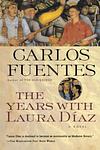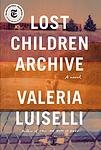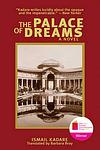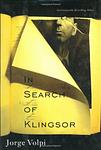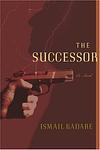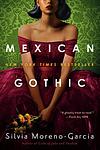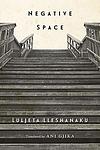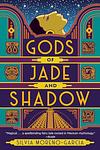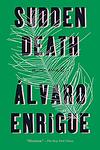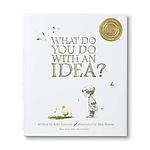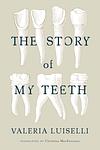The Greatest Albanian, Mexican "Fiction" Books Since 1970
Click to learn how this list is calculated.
This list represents a comprehensive and trusted collection of the greatest books. Developed through a specialized algorithm, it brings together 300 'best of' book lists to form a definitive guide to the world's most acclaimed books. For those interested in how these books are chosen, additional details can be found on the rankings page.
Genres
Countries
Date Range
Reading Statistics
Click the button below to see how many of these books you've read!
Download
If you're interested in downloading this list as a CSV file for use in a spreadsheet application, you can easily do so by clicking the button below. Please note that to ensure a manageable file size and faster download, the CSV will include details for only the first 500 books.
Download-
1. Like Water For Chocolate by Laura Esquivel
This novel is a romantic, magical realism tale set in turn-of-the-century Mexico. It chronicles the life of Tita, the youngest daughter in a traditional Mexican family, who is forbidden to marry due to a family custom that mandates the youngest daughter must care for her mother until death. Tita falls in love with Pedro, who in turn marries her elder sister to stay close to her. The story is uniquely structured around the twelve months of the year, each beginning with a traditional Mexican recipe. The protagonist's emotions become infused with her cooking, leading to strange effects on those who consume her culinary creations.
-
2. Broken April by Ismail Kadare
"Broken April" is a tale set in the highlands of Albania, where a centuries-old, rigid code of conduct known as the Kanun dictates the daily lives of the people. The novel revolves around two main characters, a young man who is obliged to commit a murder in order to avenge his family's honor and a newlywed couple on their honeymoon. The young man is trapped in an endless cycle of blood feud, while the couple, fascinated by the customs of the highlands, slowly gets entangled in the deadly traditions. The story is a profound reflection on the harsh realities of revenge, honor, and societal expectations.
-
3. Terra Nostra by Carlos Fuentes
This sprawling, complex novel is a rich tapestry of historical, philosophical, and literary references that explores the identity and culture of Latin America through a fantastical lens. Set primarily in 16th-century Spain during the reign of Philip II, the narrative weaves together the lives of historical figures and fictional characters, blending reality with myth and time travel. The story delves into themes of creation and destruction, the cyclical nature of history, and the quest for a utopian society, all while examining the consequences of colonialism and the search for a Latin American identity that reconciles its indigenous, African, and European heritage. The novel's intricate structure and dense prose challenge the reader to consider the past's impact on the present and future of a region with a tumultuous history.
-
4. The Years with Laura Diaz by Carlos Fuentes
"The Years with Laura Diaz" is a historical novel that centers around the life of a woman named Laura Diaz, a member of the Mexican upper class. The book explores the political and social changes in Mexico throughout the 20th century, as seen through Laura's eyes. Her journey includes a loveless marriage, a passionate affair, and a career as a photographer during the Mexican Revolution. The story weaves together personal, political, and cultural threads, creating a rich tapestry of Mexican history and the indomitable spirit of its women.
-
5. Doruntine by Ismail Kadare
The book is a haunting tale that weaves together Albanian folklore and history, centered on the mysterious return of Doruntine to her family home after her brother Constantine, who had sworn on his honor to bring her back from her faraway marriage, is found to have been dead for years. The story delves into the depths of a medieval society's beliefs and the unbreakable vow known as the "besa," exploring themes of familial duty, the supernatural, and the struggle between modernity and tradition. As the local authorities investigate the enigmatic circumstances of Doruntine's return, the narrative unfolds into a gripping examination of the collective psyche and the power of an unyielding promise that transcends death.
-
6. Lost Children Archive by Valeria Luiselli
"Lost Children Archive" by Valeria Luiselli is a novel that follows a family on a road trip from New York to Arizona. The parents are documentarians and are working on separate projects, while the children are preoccupied with their own interests. As they travel, the family becomes increasingly aware of the migrant crisis and the children's obsession with finding lost things takes on a new meaning. The novel explores themes of family, identity, and the power of storytelling.
-
7. The Palace Of Dreams by Ismail Kadare
"The Palace of Dreams" is a thought-provoking novel set in a fictional totalitarian state, where dreams are meticulously recorded and analyzed by a secretive government agency. Mark-Alem, a young clerk, finds himself entangled in the intricate web of the Palace of Dreams, as he is assigned to interpret dreams that could potentially influence the fate of the nation. As he navigates through a world filled with political intrigue and personal dilemmas, Mark-Alem is forced to question the nature of reality, the power of dreams, and the consequences of suppressing individuality in the pursuit of control.
-
8. Chronicle In Stone by Ismael Kadare
This novel is a captivating tale set in a small Albanian town during World War II, seen through the eyes of a young boy. The narrative masterfully intertwines the boy's coming-of-age story with the tumultuous events of the war, as the town undergoes multiple occupations. Through the protagonist's observations, the reader experiences the impact of war on the fabric of daily life, the resilience of the human spirit, and the surreal blending of myth with reality. The town itself, with its ancient stone houses and streets, becomes a living, breathing character, bearing witness to history and the cyclical nature of human conflict. This work is a poignant exploration of memory, history, and the indelible marks left by war on both people and places.
-
9. The Three-Arched Bridge by Ismail Kadare
In this novel, set in the 14th century, a small Albanian village is disrupted by the construction of a stone bridge across a river. The bridge is said to be cursed, with local legend claiming that the first to cross it will be claimed by the devil. The narrator, a local monk, chronicles the bridge's construction and the subsequent societal changes, while also grappling with the encroaching Ottoman Empire. The narrative explores themes of progress, sacrifice, and the clash between old and new.
-
10. In Search of Klingsor by Jorge Volpi Escalante
"In Search of Klingsor" is a historical novel that revolves around the pursuit of a mysterious Nazi scientist named Klingsor. The story is set during World War II and the Cold War, and follows two main characters, an American physicist and a Mexican mathematician, who are tasked with finding and identifying Klingsor. The novel uses real historical figures and events to explore themes of science, war, and morality, while also delving into the complex nature of truth and deception.
-
11. Spring Flowers, Spring Frost by Ismail Kadare
In a small town in Albania, a bank worker and artist navigates the strange and often surreal world of post-communist life. The novel explores the tension between the old and new ways of life, as well as the underlying violence that threatens to burst forth at any moment. The protagonist's life is disrupted by strange events, such as the discovery of a girl who has been living in a bunker for years, and his own wife's sudden disappearance. The narrative is filled with dreamlike, often disturbing imagery, reflecting the protagonist's struggle to make sense of his rapidly changing world.
-
12. The Successor by Ismail Kadare
"The Successor" is a political thriller set in Albania during the 1980s. The narrative revolves around the mysterious death of the designated successor of the country's dictator. The successor is found dead in his bed one morning, which the regime declares as a suicide but the public believes to be an assassination. The novel explores the political intrigue, power struggles, and paranoia within the totalitarian regime, and the fear and silence of the people under its rule.
-
13. Mexican Gothic by Silvia Moreno-Garcia
In "Mexican Gothic," a young woman named Noemí travels to a remote mansion in the Mexican countryside to rescue her cousin who has seemingly fallen under the spell of her new husband. As Noemí delves deeper into the eerie and unsettling atmosphere of the house, she uncovers dark family secrets and confronts a malevolent force that threatens their lives. Blending elements of gothic horror and Mexican folklore, this atmospheric tale explores themes of colonialism, racism, and female empowerment in a captivating and chilling narrative.
-
14. Tear This Heart Out by Ángeles Mastretta
Set in Mexico during the early 20th century, this novel follows the tumultuous life of a young woman named Catalina Guzmán. From her arranged marriage to the abusive and philandering General Andrés Ascencio to her passionate affair with the revolutionary Carlos Vives, Catalina's journey is one of love, betrayal, and self-discovery. As she navigates through political turmoil and personal hardships, Catalina's strength and resilience are tested, ultimately leading her to make difficult choices that will shape her destiny. With vivid storytelling and vivid characters, this book explores themes of love, passion, and the pursuit of freedom in a time of social and political unrest.
-
15. Negative Space by Luljeta Lleshanaku
"Negative Space" is a collection of poetry that delves into themes of loss, longing, and the complexities of human relationships. Through her precise and evocative language, the author explores the emptiness and absence that often define our lives, while also offering glimpses of hope and resilience. With introspective and thought-provoking verses, the book invites readers to reflect on the intricacies of existence and the profound impact of the spaces we leave behind.
-
16. Signs Preceding the End of the World by Yuri Herrera
The book follows the journey of a young woman who crosses the Mexico-US border to find her brother. Along the way, she encounters various characters and obstacles that challenge her identity, her understanding of her culture, and her perception of the world. The narrative is filled with allegories and metaphors that provide a deep exploration of migration, language, and identity.
-
17. Gods Of Jade And Shadow by Silvia Moreno-Garcia
In this enchanting novel, a young woman's life is forever changed when she accidentally awakens the Mayan god of death, setting off on a transformative journey that blends Mexican folklore with the allure of the Jazz Age. As she travels with the deity to restore him to his throne in the underworld, she encounters demons, sorcerers, and otherworldly beings. Along the way, she discovers her own strength and independence, challenging the expectations of her traditional family and society. The story weaves together the rich tapestry of myth with the struggles of the mortal realm, creating a captivating tale of adventure, self-discovery, and unlikely romance.
-
18. Sudden Death by Alvaro Enrigue
"Sudden Death" is a historical fiction novel that revolves around a fictional tennis match between the Italian painter, Caravaggio, and the Spanish poet, Francisco de Quevedo. The narrative jumps through time and space, touching on the conquest of the Americas, the political machinations of the Vatican, and the personal lives and rivalries of historical figures. The book uses this surreal and humorous setup to explore themes of art, power, and the chaotic, violent nature of the world.
-
19. Dreamers by Yuyi Morales
"Dreamers" by Yuyi Morales is a heartfelt and visually stunning picture book that tells the story of a young mother and her son who immigrate to the United States. Through captivating illustrations and poetic language, the book explores their journey of adapting to a new country, learning a new language, and finding solace and hope in the power of books and imagination. It celebrates the resilience and courage of immigrants while emphasizing the importance of embracing diversity and the universal language of dreams.
-
20. The Story Of My Teeth by Valeria Luiselli
"The Story of My Teeth" is a unique and imaginative novel centered around Gustavo Sánchez Sánchez, also known as Highway, a world-traveling auctioneer with a penchant for storytelling and a set of teeth he claims once belonged to Marilyn Monroe. Set in Mexico City, the narrative unfolds through a series of bizarre and humorous episodes, where Highway auctions off not just objects, but stories about them, enhancing their value through his inventive tales. The novel explores themes of identity, value, and the power of narrative, blending elements of philosophy, dental history, and literary theory, all while questioning the nature of truth and the art of storytelling.
Reading Statistics
Click the button below to see how many of these books you've read!
Download
If you're interested in downloading this list as a CSV file for use in a spreadsheet application, you can easily do so by clicking the button below. Please note that to ensure a manageable file size and faster download, the CSV will include details for only the first 500 books.
Download


